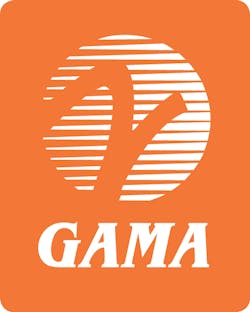GAMA Hosts Part 23 Rule Rewrite Training Sessions
Washington, DC – The General Aviation Manufacturers Association (GAMA) today hosted the first in a series of training sessions about the United States (U.S.) government’s Part 23 rule rewrite at the Boeing facility in Seattle, Wash. In December 2016, the U.S. Federal Aviation Administration (FAA) announced sweeping changes to the rules, which take effect in August. The new rules for the design of small airplanes apply to aircraft that weigh less than 19,000 pounds with 19 or fewer seats.
GAMA is hosting the training sessions at locations throughout the U.S. to offer interested aviation community members an opportunity to learn about the new design environment of the rules. The new rules will allow manufacturers and suppliers of products and technologies for small airplanes to develop and deliver innovative products to their customers more quickly and better leverage new technologies. To ensure an industry-wide understanding of the changes, GAMA is leveraging at its sessions the same FAA materials and the same FAA training experts that are being provided to the FAA workforce.
“GAMA is proud to continue championing this industry-changing rule through our training sessions,” said GAMA President and CEO Pete Bunce. “They will help ensure the aviation community understands the full and immediate benefits of the new regulatory environment in August, and highlight the possibilities of what could be, if this same type of risk based international certification rulemaking approach is extended in the future to rotorcraft and transport category fixed wing aircraft. It’s a testament to the significance of this rule rewrite that Boeing – which doesn’t currently produce small airplanes – is the host site of our first session.”
Over the last several decades the rules governing the design of small airplanes increasingly became an obstacle because they were based on outdated technologies. Now, rather than having to comply with overly prescriptive design requirements, manufacturers will now be able to more nimbly respond in a cost-effective manner through performance-based airworthiness safety rules and consensus standards for compliance.
Additionally, because the new Part 23 rule is part of a global effort to develop common certification standards, it will remove regulatory barriers and promote the acceptance of airplanes and products worldwide. Earlier this month, the European Aviation Safety Agency (EASA) finalized its CS-23 rule rewrite for small airplanes, and other authorities are expected to follow suit.
"I can't think of a more collaborative rulemaking effort,” said GAMA Vice President of Global Innovation and Policy Greg Bowles, who is leading the training sessions. “For one of such scale and significance to be executed so well is evidence of the incredible work of the general aviation community, the FAA and the U.S. Congress. Capping this achievement off with parallel training efforts within the FAA and for the industry is the ideal way to usher in a new era of safe and innovative general aviation aircraft design."
The remaining U.S. training sessions will take place on April 27 in Dallas and on May 18 in Washington, DC. GAMA also intends to support similar training sessions in Brazil, Canada, China and Europe in the coming year.
For more information, visit GAMA's website at www.GAMA.aero.
